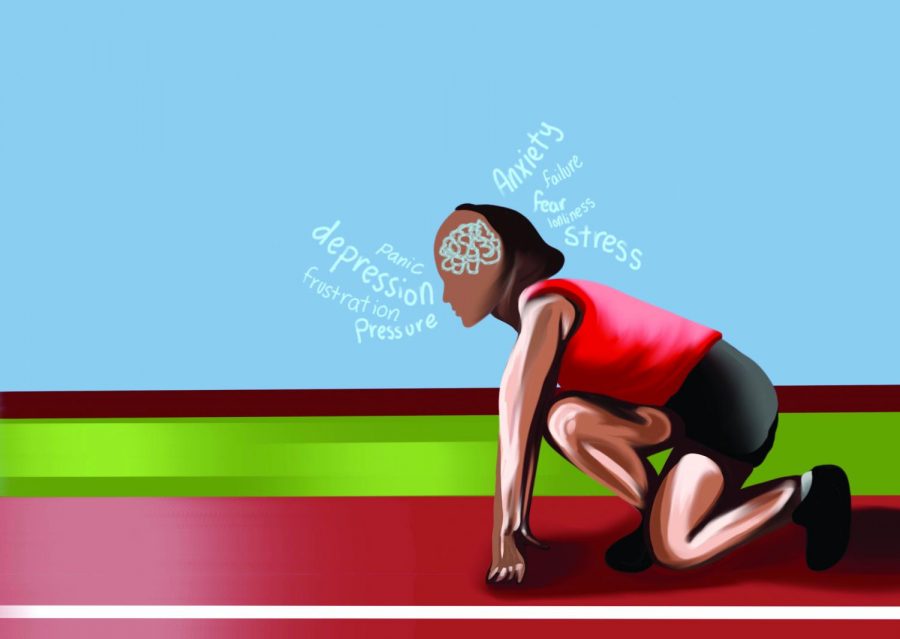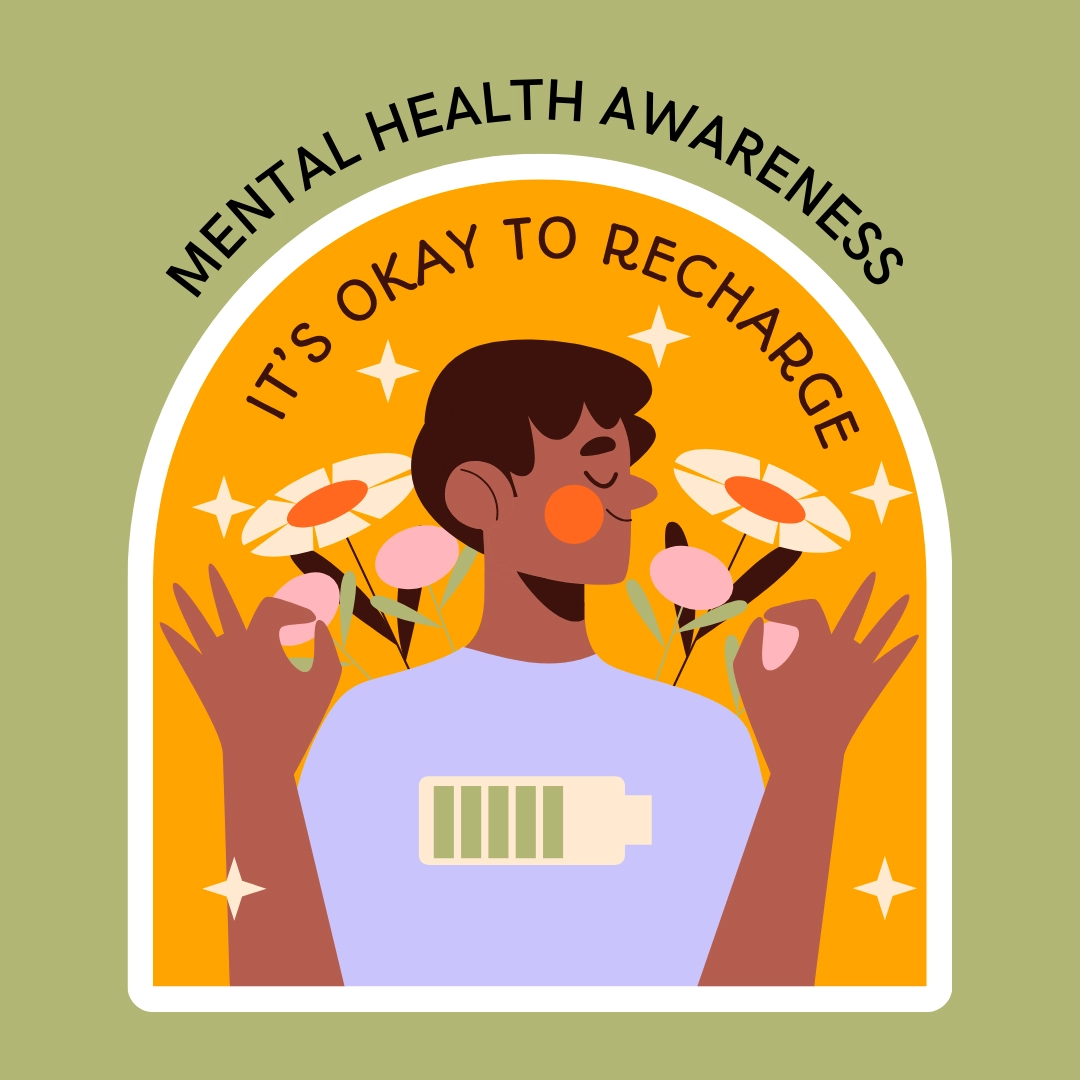We associate sports more with physical health and fitness and tend to downplay the fact that sportspersons have minds too. This has been highlighted by a handful of developments from the world of sports in recent times when superstars spoke out about mental health.
Olympics 2020 is finally happening in Tokyo, even though delayed by a year due to the COVID-19 pandemic. While the world celebrates the coming together of the greatest and best sportspersons at the event to compete for medals, the Games also highlight some of the pressures they undergo. Top-ranking Japanese woman tennis player and winner of four Grand Slam titles Naomi Osaka had an early exit as mental health issues caught up with her. Earlier this year she had drawn attention with her backing out of the French Open. She said at that time that everyone either suffers from issues related to their mental health or knows someone who does. The number of messages she received from a vast cross-section of such people confirmed that. She stayed off the media to exercise self-care and preservation of her mental health and became a virtual spokesperson for athlete mental health. Osaka was applauded by Michael Phelps, the legendary swimmer who overcame attention deficit hyperactivity disorder (ADHD) in his youth to become the greatest ever in the sport in Olympic history. US gymnastics superstar Simone Biles withdrew from the event saying she was struggling with mental block that made her land on her back in training. She said her mind and body were not in sync.
Even among the past winners, we have tennis star and Olympic gold medallist at Barcelona in 1992, Jennifer Capriati, who underwent burnout by the time she was a mere 17. Her personal struggles saw her being arrested for shoplifting and possession of marijuana and later rehabilitation. Successful England cricket Marcus Trescothick retired after just six seasons citing stress-related illness. He was found to be suffering from clinical depression. The former Indian football captain V. P. Sathyan took his own life, unable to cope with the reality of not being able to wear the jersey again. Substance abuse has been the bane of sportspeople over the years. The most infamous case was Canadian sprinter Ben Johnson who was stripped of his Olympic gold after testing positive for Stanozolol, an androgen and anabolic steroid used for enhancing performance. American athlete Marion Jones entered the hall of shame when her Sydney Olympics win was annulled for similar reasons. These are all examples from the highest level of sportsmen and one can imagine the tens of thousands of burnouts and depression cases of players at all levels in various sports the world over.
What is burnout?
Burnout is a state of emotional, physical, and mental exhaustion brought about by excess stress. It happens when a person is overwhelmed and unable to keep up with the constant demands on her. The productivity goes down and the victim, sapped of energy, ends up feeling hopeless. Burnout is different from stress in that the former is marked by a feeling of helplessness, loss of motivation and depression. The damage is mostly emotional.
Symptoms of burnout
- Feeling tired
- Headaches and muscle pain
- Frequent illnesses
- Abnormal appetite and sleep
- Feeling detached and demotivated
- Self-doubt
- Negative outlook
- No sense of accomplishment
- Shirking responsibilities
- Procrastination
- Substance abuse
Causes of burnout
- Unreasonable expectation
- Peer pressure
- High-pressure environment
- Lack of recognition
- Working without relaxation
- Lack of proper diet and sleep
- Not delegating tasks
- A tendency towards perfectionism
How can you prevent burnout?
The following are some things to do if you feel burnout.
Reach out to others when you feel down and out. Friends or family can help you unburden your worries. Talking to a keen listener who does not judge you will relieve stress to some extent. This will also help you take your mind off depressing thoughts and engage in something that fills you with positive energy. Take part in social activities or join communities that are removed from your normal work.
Just as it is important to seek out positive people, stay strictly away from negative people and toxic relationships of all kinds. Connect with a social cause or a community group. Seek out new friends and projects and importantly, see the value in what you do. Try to achieve work-life balance. No work should be overwhelming enough to make you want to take your life. There should be enough safety valves in life.
Taking time off, as we saw the Olympic gymnast Biles do, is one of the best ways to come back rejuvenated. You can use the time to go on a vacation or simply reflect and recoup. Do not overstretch yourself. Learn the subtle art of saying ‘No.’ To quote Naomi Osaka, ‘It’s OK not to be OK.’
Even though technology has made our worlds smaller, it helps to take a break from it once in a while. Turning off the smartphone or not paying attention to social media seems unthinkable for most of us now, but if we are to achieve mental peace, we must practice ‘going nowhere’ as the travel writer Pico Iyer put it.
Once again, the importance of regular exercise, adequate sleep and a proper, balanced diet cannot be emphasized enough. Eat more Omega-3 fatty acids to boost moods. Avoid nicotine.
The moment you feel that your mental health is beyond your control or needs clinical intervention, do not lose any time in seeking it. Technological advances allow us to use digital platforms to seek counselling and therapy support. The advantages are that you can choose your therapist and time and save the hassles of travel and waiting. Plus, a leader like the PACIFYR app with a holistic and preventive approach offers a plethora of choices for those who require help as well as the providers.
There can simply be no physical achievement without top mental health. A sound mind in a sound body produces winners.




